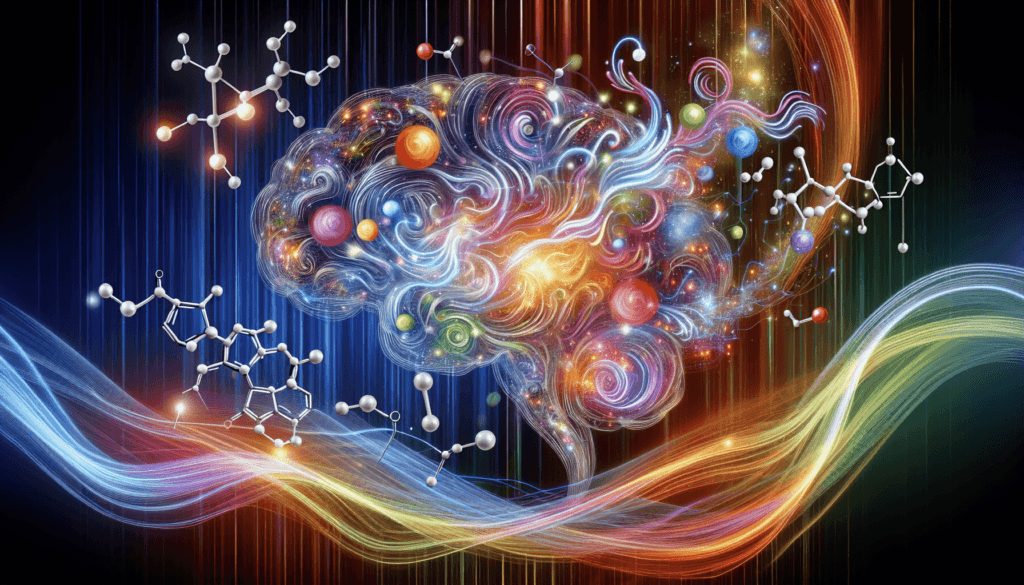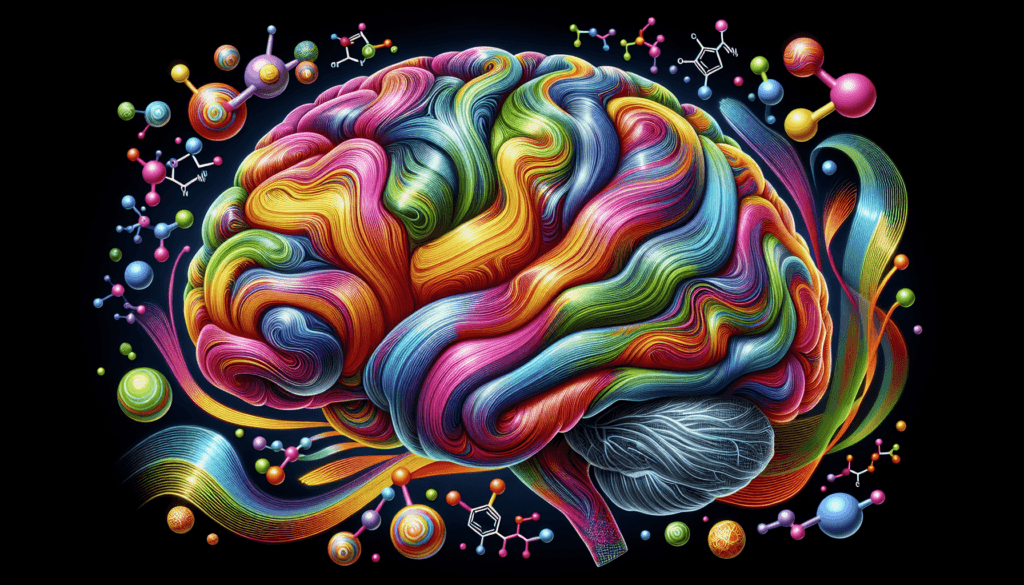Have you ever wondered what orchestrates the complex symphony within your body that keeps everything working harmoniously? It’s quite fascinating when you think about it: all those systems operating day in and day out. The key players in this grand performance are hormones. But what exactly are hormones, and why are they so important in maintaining our body’s functionality?

Understanding Hormones: The Basics
Hormones are chemical messengers that play a crucial role in regulating various physiological processes in the body. Produced by glands in the endocrine system, they travel through the bloodstream to tissues and organs, affecting everything from your mood and growth to metabolism, sexual function, and even sleep. Essential for communication within your body, hormones ensure that different systems work in sync.
What Are Hormones?
Table of Contents
Simply put, hormones are powerful, intricate compounds that your body produces to help control and coordinate activities. Think of them as the text messages your organs send to each other to ensure everything is running smoothly. Each hormone has a specific role and target, maintaining balance and promoting optimal functioning.
The Endocrine System: A Network of Communication
Your body’s endocrine system is a network of glands that produce and release hormones. These glands include the pituitary, thyroid, parathyroid, adrenal, and pineal glands, as well as the pancreas, ovaries, and testes. Each of these glands has a specific function and releases different hormones based on your body’s needs.
Key Hormones and Their Roles
To truly appreciate how hormones affect your body, let’s explore some of the key hormones, what they do, and their benefits in maintaining human functionality.
Adrenaline: The Emergency Response
One hormone you might be familiar with is adrenaline, also known as epinephrine. Produced by the adrenal glands, it kicks in when you’re stressed or scared, triggering the body’s fight-or-flight response. This hormone increases heart rate, enhances blood flow to muscles, and boosts energy supplies. In a way, adrenaline prepares your body to face challenges or escape threats, underscoring the body’s incredible survival mechanisms.
Insulin: Regulating Sugar Levels
Insulin is another vital hormone, produced by the pancreas. It regulates blood glucose levels by helping cells absorb sugar to use as energy. Insulin’s critical role in managing energy levels and blood sugar highlights its importance in preventing conditions like diabetes.
Cortisol: Managing Stress
Cortisol, often referred to as the “stress hormone,” helps regulate metabolism, inflammation, and immune response. Produced in the adrenal glands, cortisol helps manage how your body uses carbohydrates, fats, and proteins, while also controlling sleep-wake cycles. It’s remarkable how this hormone helps keep stress levels in check, ensuring you remain functional and healthy.
Estrogen and Testosterone: Vital for Reproduction
Estrogen and testosterone are primary sex hormones in females and males, respectively, although both hormones are present in each sex. Estrogen is largely responsible for development and regulation of the female reproductive system and secondary sexual characteristics, while testosterone supports muscle growth, bone density, and the male reproductive system. Behind the scenes, these hormones contribute to many processes beyond reproduction, affecting mood, cognitive abilities, and more.
Thyroxine: Thyroid Function and Metabolism
Produced by the thyroid gland, thyroxine (or T4) plays a significant role in regulating metabolism. This hormone influences heart and digestive function, brain development, bone health, and muscle control. By controlling the rate at which your body converts food into energy, thyroxine helps maintain a stable energy balance, crucial for overall well-being.
Melatonin: The Sleep Regulator
Melatonin, produced by the pineal gland, is essential for regulating sleep patterns. As darkness falls, melatonin levels increase, signaling to your body that it’s time to sleep. By promoting a regular sleep-wake cycle, melatonin ensures you get the rest necessary for physical and mental recovery.
The Interconnectedness of Hormones
Hormones don’t work in isolation; they’re part of an intricate web of cause and effect. This interconnectedness means a change in one hormone’s levels can affect others, demonstrating the delicacy of the balance your body maintains.
Feedback Loops and Balance
The body employs feedback loops to maintain hormone balance. For instance, high levels of a specific hormone might signal back to its gland of origin to reduce production. This regulatory process is vital for homeostasis—a stable internal environment your body strives to maintain.
Hormonal Imbalances and Their Effects
When hormonal imbalances occur, they can lead to various health issues. Symptoms might include fatigue, weight gain, or mood swings, reflecting just how much hormones influence every aspect of health. Recognizing and addressing these imbalances is crucial for maintaining optimal functionality.
The Importance of Hormones in Human Functionality
From growth and development to mood regulation and energy balance, hormones underpin every aspect of human functionality. Their orchestrated actions ensure that complex bodily systems work smoothly, adapting to life’s ever-changing demands.
Growth and Development
Hormones like growth hormone and thyroid hormones dictate how you grow and develop. They ensure that children grow into adults with strong bones, muscles, and cognitive abilities. This structured development emphasize hormones’ fundamental role in our physical and mental maturation.
Mood and Emotional Well-being
The connection between hormones and mood suggests why you might feel more irritable or elated at different times. Serotonin and dopamine, for instance, are neurotransmitters influenced by hormonal activity, playing a key role in emotional health. Balanced hormones promote a stable emotional state and a positive overall outlook.
Energy Management and Metabolism
Hormones determine how your body uses, stores, and utilizes energy. They are critical in regulating metabolism and influencing how you burn calories. Hormones like thyroxine and insulin ensure that your energy levels remain sufficient for daily activities and long-term health.
Sexual Function and Reproduction
Sexual hormones such as estrogen, progesterone, and testosterone establish and maintain reproductive health. They influence libido, fertility, and reproductive processes, demonstrating how hormones are deeply intertwined with your longing for connection and procreation.

Supporting Hormonal Health
Keeping your hormones balanced is a cornerstone of maintaining overall health. Simple lifestyle choices can have a significant impact on ensuring your hormones function optimally.
Diet and Nutrition
A nutritious diet rich in essential vitamins and minerals can support endocrine health. Prioritizing whole foods such as vegetables, fruits, lean proteins, and healthy fats provides the building blocks for hormone production and balance.
Regular Exercise
Exercise helps regulate hormones by promoting insulin sensitivity and reducing stress hormone levels. Engaging in regular physical activity can boost your mood, energy, and overall fitness levels, contributing to better hormonal health.
Stress Management
Chronic stress can lead to hormonal imbalances, making stress management techniques integral to maintaining balance. Practices like meditation, yoga, and deep breathing can help lower cortisol levels and promote relaxation.
Sleep Quality
Consistent quality sleep supports hormonal health by allowing for proper repair and regulation of the body’s systems. Aim for 7-9 hours of restful sleep each night to foster a well-functioning hormone system.
Avoiding Endocrine Disruptors
Environmental factors can impact hormonal health. Endocrine disruptors found in plastics, personal care products, and pesticides can interfere with hormonal balance. Reducing exposure to these substances helps protect your hormone health.
Conclusion
Hormones are foundational to how your body operates, influencing everything from your mood and energy levels to growth and reproductive health. Their meticulous regulation ensures interconnected systems work cohesively. By understanding the role of hormones and how they impact every aspect of your life, you can make informed decisions to support your health and well-being. Ensuring balanced hormones through proper nutrition, exercise, stress management, and sleep leads to an optimally functioning body, ready to tackle each day with vigor and vitality.




